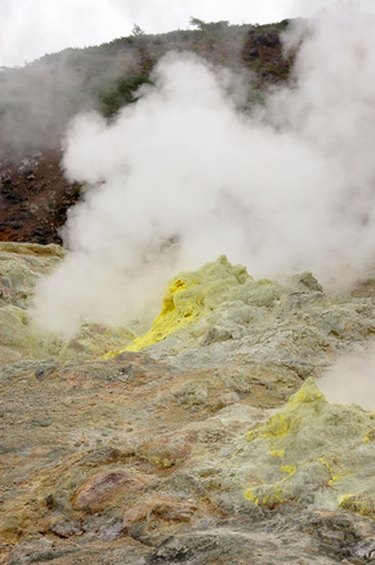
Used extensively as additives to indoor potting soil mixes, as well as to improve the structure of garden soil, perlite and vermiculite are both minerals. Gardeners use perlite to lighten potting-soil mixtures and improve the soil structure by creating air pockets, which facilitate the growth of a healthy root system. Vermiculite holds many times its own weight in water; add it to indoor potting mixes and garden soils for this moisture-holding ability. Although perlite and vermiculite are two of the most widely used soil amendments, you can easily substitute other organic soil amendments with similar properties in garden beds and indoor potting mixes.
Coconut Husks
Video of the Day
Commonly referred to as "coir," shredded coconut husks are widely used as additions to potting soil mixes. Larger pieces are used in soil mixes for growing orchids, medium-size pieces are included in soil mixes for growing cacti and succulents; small pieces are added to all-purpose potting soil mixes. Its ability to lighten soil mixtures, its moisture-retaining ability and its slow rate of decomposition make coir an ideal replacement for both perlite and vermiculite.
Video of the Day
Composted Materials
Depending on the manufacturer of the indoor potting mix, composted yard wastes, cotton gin wastes, mushroom growing medium or municipal compost are used in both potting soil mixes and to improve soil in garden beds. The moisture-holding ability of composted materials, along with their irregularly sized particles, makes composted materials a viable alternative for both vermiculite and perlite.
Hulls
For lightening soils, use rice, peanut and pecans hulls in potting soil mixes or garden beds. Their irregularly-shaped pieces break down slowly, making these hulls an excellent substitute for perlite.